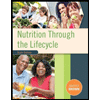bilirubin
docx
keyboard_arrow_up
School
Universidad del Norte *
*We aren’t endorsed by this school
Course
9772
Subject
Nursing
Date
Nov 24, 2024
Type
docx
Pages
4
Uploaded by ConstableSkunkMaster628
Your preview ends here
Eager to read complete document? Join bartleby learn and gain access to the full version
- Access to all documents
- Unlimited textbook solutions
- 24/7 expert homework help
Recommended textbooks for you


Human Heredity: Principles and Issues (MindTap Co...
Biology
ISBN:9781305251052
Author:Michael Cummings
Publisher:Cengage Learning


Nutrition Through The Life Cycle
Health & Nutrition
ISBN:9781337919333
Author:Brown, Judith E.
Publisher:Cengage Learning,


Nutrition Through the Life Cycle (MindTap Course ...
Health & Nutrition
ISBN:9781305628007
Author:Judith E. Brown
Publisher:Cengage Learning
Recommended textbooks for you
 Human Heredity: Principles and Issues (MindTap Co...BiologyISBN:9781305251052Author:Michael CummingsPublisher:Cengage Learning
Human Heredity: Principles and Issues (MindTap Co...BiologyISBN:9781305251052Author:Michael CummingsPublisher:Cengage Learning Nutrition Through The Life CycleHealth & NutritionISBN:9781337919333Author:Brown, Judith E.Publisher:Cengage Learning,
Nutrition Through The Life CycleHealth & NutritionISBN:9781337919333Author:Brown, Judith E.Publisher:Cengage Learning, Nutrition Through the Life Cycle (MindTap Course ...Health & NutritionISBN:9781305628007Author:Judith E. BrownPublisher:Cengage Learning
Nutrition Through the Life Cycle (MindTap Course ...Health & NutritionISBN:9781305628007Author:Judith E. BrownPublisher:Cengage Learning


Human Heredity: Principles and Issues (MindTap Co...
Biology
ISBN:9781305251052
Author:Michael Cummings
Publisher:Cengage Learning


Nutrition Through The Life Cycle
Health & Nutrition
ISBN:9781337919333
Author:Brown, Judith E.
Publisher:Cengage Learning,


Nutrition Through the Life Cycle (MindTap Course ...
Health & Nutrition
ISBN:9781305628007
Author:Judith E. Brown
Publisher:Cengage Learning